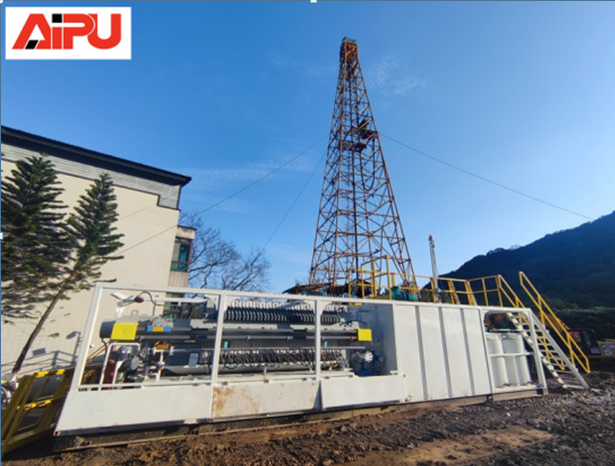Unveiling the Secrets of Efficient Drilling
In the oil and gas industry, the efficient handling of drilling fluids is crucial for successful drilling operations. Solids control equipment plays a pivotal role in transforming the way drilling fluid is managed, ensuring optimal performance and cost - effectiveness.
Understanding Solids Control Equipment
Solids control equipment is a set of machinery designed to remove unwanted solids from drilling fluids. These solids can include cuttings from the drilled formation, as well as other contaminants. The main components of solids control equipment typically include shale shakers, desanders, desilters, and centrifuges. Shale shakers are the first line of defense, using vibrating screens to separate large cuttings from the drilling fluid. Desanders and desilters further remove smaller particles, while centrifuges are used for the most precise separation, removing ultra - fine solids.
The Importance of Solids Control in Drilling Operations
Proper solids control is essential for several reasons. Firstly, it helps to maintain the properties of the drilling fluid. By removing solids, the density, viscosity, and other important characteristics of the fluid can be kept within the desired range. This is crucial for effective hole cleaning, wellbore stability, and the prevention of differential sticking. Secondly, it reduces wear and tear on drilling equipment. Excessive solids in the drilling fluid can cause abrasion on pumps, drill bits, and other components, leading to costly repairs and downtime. Finally, it has environmental benefits. By removing solids from the drilling fluid, the amount of waste that needs to be disposed of is reduced, minimizing the environmental impact of drilling operations.
Technological Advancements in Solids Control Equipment
Over the years, there have been significant technological advancements in solids control equipment. Modern shale shakers are equipped with advanced screen technologies that offer higher screening efficiency and longer screen life. They can also be adjusted to different vibration frequencies and amplitudes to suit various drilling conditions. Desanders and desilters have been improved with better hydrocyclone designs, allowing for more precise separation of particles. Centrifuges have become more powerful and energy - efficient, with advanced control systems that can automatically adjust the separation process based on the properties of the drilling fluid.
The Future of Solids Control Equipment
The future of solids control equipment looks promising. With the increasing demand for oil and gas, as well as the need for more sustainable drilling practices, there will be a continued focus on improving the efficiency and effectiveness of solids control equipment. Future developments may include the integration of artificial intelligence and automation technologies to optimize the solids control process. Additionally, there will likely be a greater emphasis on developing equipment that is more compact, lightweight, and easier to transport, making it suitable for use in remote and challenging drilling locations.
In conclusion, solids control equipment is revolutionizing the way drilling fluid is handled. Its importance in maintaining drilling fluid properties, protecting equipment, and reducing environmental impact cannot be overstated. With ongoing technological advancements, the future of solids control equipment is set to bring even more benefits to the oil and gas industry.

Understanding Solids Control Equipment
Solids control equipment is a set of machinery designed to remove unwanted solids from drilling fluids. These solids can include cuttings from the drilled formation, as well as other contaminants. The main components of solids control equipment typically include shale shakers, desanders, desilters, and centrifuges. Shale shakers are the first line of defense, using vibrating screens to separate large cuttings from the drilling fluid. Desanders and desilters further remove smaller particles, while centrifuges are used for the most precise separation, removing ultra - fine solids.
The Importance of Solids Control in Drilling Operations
Proper solids control is essential for several reasons. Firstly, it helps to maintain the properties of the drilling fluid. By removing solids, the density, viscosity, and other important characteristics of the fluid can be kept within the desired range. This is crucial for effective hole cleaning, wellbore stability, and the prevention of differential sticking. Secondly, it reduces wear and tear on drilling equipment. Excessive solids in the drilling fluid can cause abrasion on pumps, drill bits, and other components, leading to costly repairs and downtime. Finally, it has environmental benefits. By removing solids from the drilling fluid, the amount of waste that needs to be disposed of is reduced, minimizing the environmental impact of drilling operations.
Technological Advancements in Solids Control Equipment
Over the years, there have been significant technological advancements in solids control equipment. Modern shale shakers are equipped with advanced screen technologies that offer higher screening efficiency and longer screen life. They can also be adjusted to different vibration frequencies and amplitudes to suit various drilling conditions. Desanders and desilters have been improved with better hydrocyclone designs, allowing for more precise separation of particles. Centrifuges have become more powerful and energy - efficient, with advanced control systems that can automatically adjust the separation process based on the properties of the drilling fluid.
The Future of Solids Control Equipment
The future of solids control equipment looks promising. With the increasing demand for oil and gas, as well as the need for more sustainable drilling practices, there will be a continued focus on improving the efficiency and effectiveness of solids control equipment. Future developments may include the integration of artificial intelligence and automation technologies to optimize the solids control process. Additionally, there will likely be a greater emphasis on developing equipment that is more compact, lightweight, and easier to transport, making it suitable for use in remote and challenging drilling locations.
In conclusion, solids control equipment is revolutionizing the way drilling fluid is handled. Its importance in maintaining drilling fluid properties, protecting equipment, and reducing environmental impact cannot be overstated. With ongoing technological advancements, the future of solids control equipment is set to bring even more benefits to the oil and gas industry.








